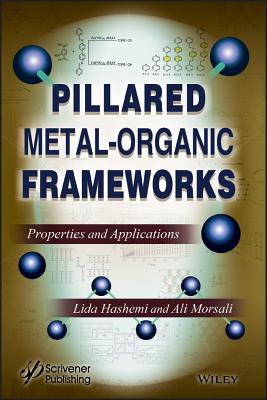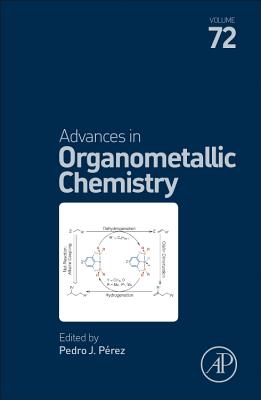Pillared Metal-Organic Frameworks: Properties and Applications
暫譯: 支柱型金屬有機框架:特性與應用
Hashemi, Lida, Morsali, Ali
- 出版商: Wiley-Scrivener
- 出版日期: 2019-04-30
- 售價: $6,760
- 貴賓價: 9.5 折 $6,422
- 語言: 英文
- 頁數: 378
- 裝訂: Hardcover - also called cloth, retail trade, or trade
- ISBN: 1119460247
- ISBN-13: 9781119460244
-
相關分類:
化學 Chemistry
海外代購書籍(需單獨結帳)
相關主題
商品描述
In the last two decades, metal-organic frameworks (MOFs) have provoked considerable interest due to their potential applications in different fields such as catalysis, gas storage and sensing. The most important advantages of MOFs over other porous materials is the ability of tailoring their pore size, functionality and even the topology of the framework by rational selection of the molecular building blocks. Therefore, many chemists have tried to engineer the structure of MOFs to achieve specific functions.
Pillared metal organic frameworks are a class of MOFs composed of inorganic secondary building units (SBUs) and two sets of organic linkers, generally oxygen- and nitrogen-donor ligands. Typically, in the structure of pillared MOFs, the oxygen-donor struts link the metal clusters into a two-dimensional (2D) sheet and the N-donor struts pillar the sheets to generate a three-dimensional (3D) framework. Thus, the construction of MOFs by utilizing two sets of organic linkers could provide an extra possibility for further tuning of MOF's pore walls. A variety of functional groups including imine, amide and heterocycles were successfully incorporated into bidentate pillar ligand skeleton. Interestingly, by using pillaring linkers with different length, a wide diversity of metal-organic frameworks with tunable pore dimensions and topologies can be obtained. In this book, we introduce pillared metal organic frameworks with their properties and applications.
商品描述(中文翻譯)
在過去的二十年中,金屬有機框架(MOFs)因其在催化、氣體儲存和感測等不同領域的潛在應用而引起了相當大的興趣。MOFs 相較於其他多孔材料的最重要優勢在於能夠通過合理選擇分子建構單元來調整其孔徑、功能性甚至框架的拓撲。因此,許多化學家嘗試對 MOFs 的結構進行工程設計,以實現特定的功能。
柱狀金屬有機框架是一類由無機次級建構單元(SBUs)和兩組有機連接劑組成的 MOFs,通常是氧和氮供體配體。通常,在柱狀 MOFs 的結構中,氧供體支架將金屬簇連接成二維(2D)片層,而氮供體支架則支撐這些片層以生成三維(3D)框架。因此,通過利用兩組有機連接劑來構建 MOFs,可以為進一步調整 MOF 的孔壁提供額外的可能性。各種功能性基團,包括亞胺、酰胺和雜環,已成功地納入雙齒柱狀配體骨架中。有趣的是,通過使用不同長度的支撐連接劑,可以獲得具有可調孔徑和拓撲的多樣化金屬有機框架。在本書中,我們介紹了柱狀金屬有機框架及其特性和應用。
作者簡介
Lida Hashemi is a postdoctoral researcher at Tarbiat Modarers University, Tehran, Iran. She obtained her PhD in inorganic chemistry from the same university in 2014. She has published 30 articles in international journals and has one patent to her name. Her research interests are coordination chemistry, nanotechnology and metal-organic frameworks.
Ali Morsali is Master in Inorganic Chemistry in Tarbiat Modares University, Tehran, Iran. He obtained his PhD in 2003 in Inorganic Chemistry from the same university. He has published more than 400 articles in international journals as well as 5 patents. He has received numerous national awards. Amongst his research interests are coordination chemistry and metal-organic frameworks.
作者簡介(中文翻譯)
Lida Hashemi 是伊朗德黑蘭塔爾比亞特·莫達雷斯大學的博士後研究員。她於2014年在同一所大學獲得無機化學博士學位。她在國際期刊上發表了30篇文章,並擁有一項專利。她的研究興趣包括配位化學、奈米技術和金屬有機框架。
Ali Morsali 是伊朗德黑蘭塔爾比亞特·莫達雷斯大學的無機化學碩士。他於2003年在同一所大學獲得無機化學博士學位。他在國際期刊上發表了超過400篇文章,並擁有5項專利。他獲得了多項國家獎項。他的研究興趣包括配位化學和金屬有機框架。












